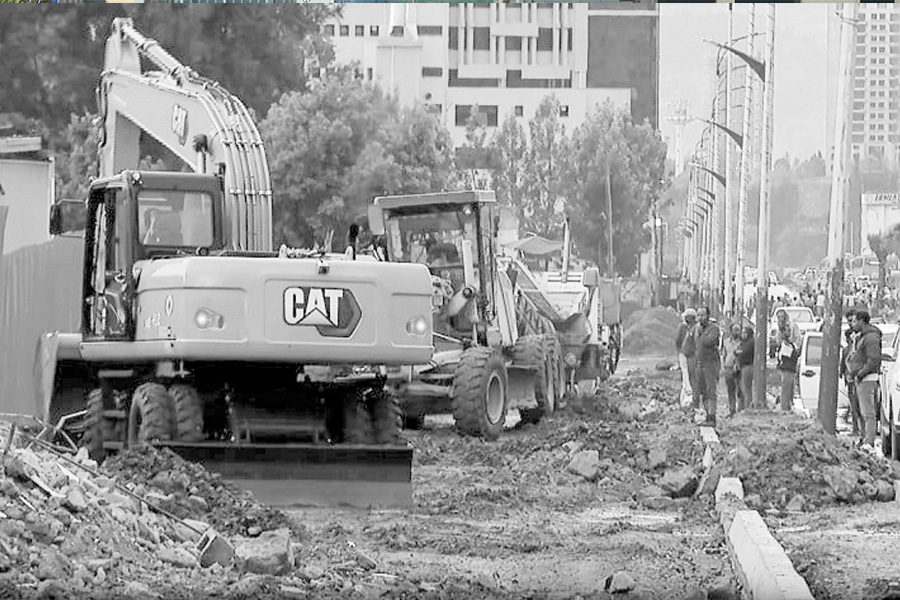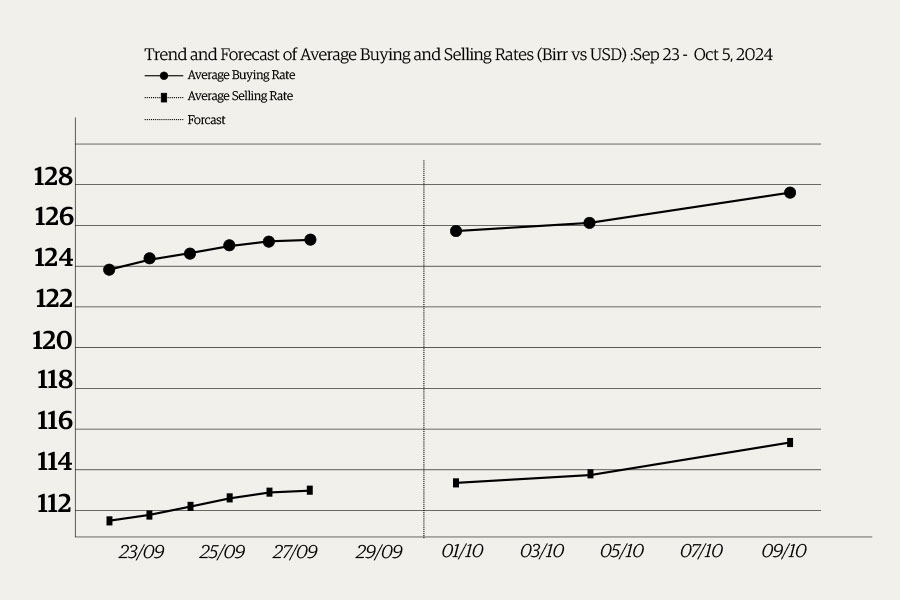
I was among the elderly on a social occasion and could not help but overhear someone lamenting about the "current" time while comparing it with the past. Tending to culturally gravitate to trust and accept the wisdom of the elderly, there were many within the audience who absorbed this sad tale from the respectable senior without a grain of salt.
Dumbfounded by the comment that paints a rosy past, a gloomy present and a dark tomorrow, I continued to listen. It is ironic the comment was coming from a person who is a returnee diaspora after living in exile for decades due to political persecution. While managing a newly founded local business that is thriving, the speaker was basically enjoying the best of both worlds, acquiring substantial property and financial assets overseas.
Unfortunately, people with bigger slices of the cake whine more than their less fortunate counterparts. Their relatively better position in the socioeconomic strata helps them command the respect of others, which is used as a platform to sow the seeds of discontent.
During my visits to the West, I have met people who complain about the systems of their host countries. In a situation where things appear to be much better than what they were used to, it leaves me wondering if they would be comfortable anywhere at all.
Positive advancements are turned a blind eye while depressing news lingers around. Had the opposite line of argument been taken that claimed things were much better today than in the past, I bet voices of descent could have promptly challenged in an attempt to subdue it.
Ever since childhood, I can not remember a time when people did not complain about their dealt hand. Although today was paved by yesterday and summons tomorrow, seniors who have tasted both waters paint a gloomy picture of the current state.
The media plays a great role in spreading information. Consequently, misinformation might arise without careful selection.
It is easy to believe that life is getting worse. One catastrophe after another is highlighted while making terrifying predictions. While problems remain, the world is getting better although we rarely hear about it.
I recall people glued to their transistor radios with very poor signal reception and squeaky sounds of radio stations. Some go as far as attaching metallic wires to the antenna to augment the sounds while others climb to the top of a tree or stroll around to get clarity.
The broadcasters narrated the news bulletin from the comfort of the studios overseas. Having heard these journalists over several decades makes them household names known by most. But their narrative did not change over the years as I advanced in age.
The ubiquitous pessimism reached its peak since the advent of social media with universal reach.
Case in point is my experience. On the brink of a regime change in 2018, I resided in West Africa. There was no denying the moment was a time of great uncertainty where well-founded fear hovered in the psyche of the nation. In the absence of a reliable form of news media in a Francophone country, I had to rely on YouTube to follow the events in my hometown. The myriad of daily reports that bombarded my mobile screen were horrifying.
I was unable to keep up with the flood of negativity and grim prospects. Indeed, some events were horrific, but the presentation was amplified and too much to bear. My distress level reached the point of wondering if it was safe to return.
I had to come back for a week and expected the worst. While problems persist, thankfully, it was in stark contrast to the YouTube headlines. People were going about their business while the beer halls were filled with the leisure-loving crowd.
When it was time to return, I made my permanent residence in the Ayat area, a neighbourhood I was not familiar with. The first few months were compounded with cautiously venturing around the Ayat Square and train station, to have a real-time feel of how things were faring.
The fact is that the fanfare of propagating negative news bears its fruits in people’s psyches with the eventual potential of materialising into negative actions on the ground. The irresponsible dissemination of false, negative and sometimes exaggerated narratives does more damage than actual events in terms of eroding trust, tranquillity and normalcy.
Unfortunately, people are highly sensitised and drawn to pessimism and gloomy narratives instead of fact checking. Most do not think twice before sharing and commenting on toxic content, which helps in making it viral. At the other end of the spectrum, people are stashing their pockets with dirty money earned from likes, subscriptions and shares on YouTube. It is morally corrupt to profit from psychological trauma.
I regret the countless nights I spent glued to the mobile screen, in earnest concern for my homeland and loved ones being fed with the most poisonous and highly manipulated information.
Helen Keller once said, “No pessimist ever discovered the secrets of the stars, or sailed to an uncharted land, or opened a new heaven to the human spirit”. Indeed, a worldview fogged with distorted reality is toxic and contagious. It pulls an uplifted spirit like gravity.
It is time to get offline, switch off the television and radio channels and examine what is really going on. Too much exposure lest verification is unwise. It is every beat worth it to unplug and come to terms with the real reality. Apart from peace of mind, it will provide a balanced worldview.
There is a saying: 'Reality bites'. I say better live with bland, mundane reality than fall prey to addictive fairytales where the feeble minds reign supreme. Let us give room for the other side of the story, a fresh breath in a house stifled by a stale air of stagnant narrative.
PUBLISHED ON
[ VOL
, NO
]

Fortune News | Oct 06,2024

Life Matters | Oct 12,2019

View From Arada | Nov 30,2024

Fortune News | Jun 22,2024

Viewpoints | Jun 25,2022

Sunday with Eden | Mar 23,2024

Money Market Watch | Sep 28,2024

Viewpoints | May 01,2020

Fortune News | May 29,2021

Viewpoints | Sep 11,2020

Dec 22 , 2024 . By TIZITA SHEWAFERAW
Charged with transforming colossal state-owned enterprises into modern and competitiv...

Aug 18 , 2024 . By AKSAH ITALO
Although predictable Yonas Zerihun's job in the ride-hailing service is not immune to...

Jul 28 , 2024 . By TIZITA SHEWAFERAW
Unhabitual, perhaps too many, Samuel Gebreyohannes, 38, used to occasionally enjoy a couple of beers at breakfast. However, he recently swit...

Jul 13 , 2024 . By AKSAH ITALO
Investors who rely on tractors, trucks, and field vehicles for commuting, transporting commodities, and f...

Oct 11 , 2025
Ladislas Farago, a roving Associated Press (AP) correspondent, arrived in Ethiopia in...

Oct 4 , 2025
Eyob Tekalegn (PhD) had been in the Governor's chair for only weeks when, on Septembe...

Sep 27 , 2025
Four years into an experiment with “shock therapy” in education, the national moo...

Sep 20 , 2025
Getachew Reda's return to the national stage was always going to stir attention. Once...